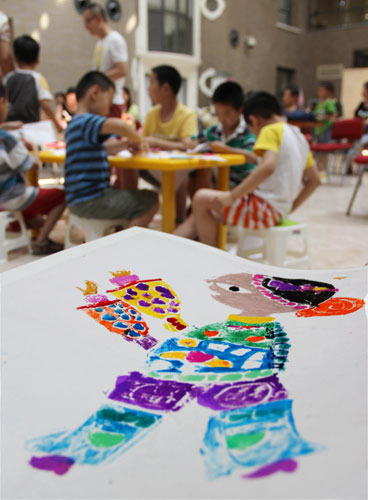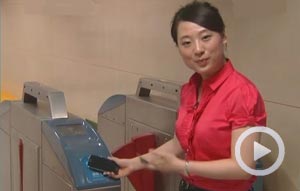No summer relief for kindergarten pupils
Updated: 2013-07-25 09:08
By Wu Ni (China Daily)
|
|||||||||||
Zero start
Early this year, the Shanghai Education Commission reiterated its policy that English and Chinese should be taught from a "zero start" in the first grade. Public kindergartens are not allowed to teach pinyin, math or English.
Similar policies have been introduced in other cities too. In Beijing, as well as Guangdong province and the Guangxi Zhuang autonomous region, the education authorities have ordered that public kindergartens should not provide any training courses and instead should ensure "a happy education" for children.
However, this well-intentioned policy has prompted many parents to send their children to preschool training courses. The public kindergarten Jiayi attends, the Shanghai Science and Technology Kindergarten in Xuhui district, used to teach English for 10 minutes every day. When the classes were cancelled, some concerned parents sought external alternatives.
Zhu Jianmin, director of the private Shanghai Modern Baby Kindergarten in Pudong New Area, said private kindergartens are more flexible in their teaching programs.
"We teach some math and pinyin in the second term of the senior group class so the children's transition to primary school will be as smooth as possible. This is in response to strong demand from the parents, who pay great attention to it. If we don't set homework on pinyin or English every day, they are very unhappy," she said.
This "hothousing" has resulted in widely differing academic skills among new students in primary schools, according to Zhu Yuanzhen, an English teacher who has taught at a primary school in Shanghai's Minhang district for 20 years.
"Some of the first-grade students have already achieved the level of third-grade students, such as knowing a large number of characters, communicating fluently in English and mastering double-digit multiplication and division," she said, adding that it will be difficult to implement the "zero start" policy in classes because 60 to 80 percent of the students have already learned some of the basics before beginning primary school.
"When we teach a given topic, some of the students find it difficult to follow, while others feel they've already mastered the basics, become bored and lose interest," she said, emphasizing that the teachers tailor their approach based on the demands of the majority. She said that learning gap usually disappears when the children reach the fourth or fifth grades.
Attending training courses may prove effective over the short term, but the practice can undermine children's interest in study. Moreover, the courses may also dampen curiosity and creativity because the children come to accept that most questions have only one correct answer, according to Li Yan, a professor of preschool education at Shanghai Normal University. "The most important thing in the preschool phase is to develop the children's interest, their passion for study and to inculcate a positive and cooperative attitude towards their peers, which will help them to adjust to group life at primary school."
Today's Top News
Snowden's hopes of leaving airport dashed
Substandard chargers for phones may prove deadly
Major advance to halt flow of 'gutter oil'
Beijing weighs individual care
Death toll in Spain train crash rises to 56
China issues trade facilitation measures
Li points way for railways reform
Fewer Chinese consumers picking Apple's iPhone
Hot Topics
Lunar probe , China growth forecasts, Emission rules get tougher, China seen through 'colored lens', International board,
Editor's Picks

|

|

|

|

|

|






